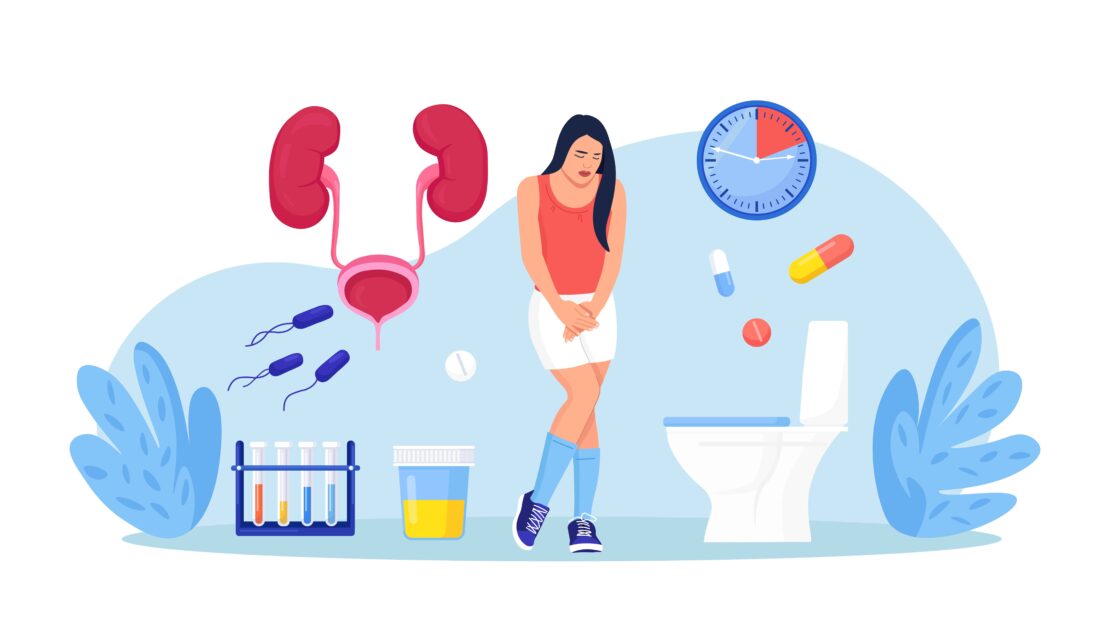Urinary Tract Infections (UTIs) are a common but often underestimated health issue that can significantly impact one’s quality of life if left untreated or not managed properly. For many individuals, especially women, recurrent UTIs can become a frustrating and persistent problem. Addressing this issue promptly is crucial to prevent complications and ensure long-term health. Here’s why seeking timely medical advice is essential-
Jinkushal Cardiac Care & Superspeciality hospital
Recurring UTIs
- June 27, 2024
- Posted by: Jinkushal Cardiac Care Hospital
- Category: Uncategorized

Recurring UTIs? Do Not Waste Time; Consult A Doctor!
Understanding UTIs-
UTIs occur when bacteria enter the urinary tract, leading to infection. Unless you’re in the fortunate minority of women who have never had a urinary tract infection (UTI), you know the symptoms well.
Symptoms often include a frequent urge to urinate, a burning sensation during urination, cloudy or strong-smelling urine, and sometimes even fever or chills.
While most UTIs are easily treated with antibiotics, Recurrent UTIs aren’t due to poor hygiene or something else that women have brought on themselves but it may indicate underlying issues that need professional attention.

Why Do Some Women Get Recurrent UTIs?
The infections are usually caused by Escherichia coli, a bacterium that lives in the intestinal system. If E. coli are carried from the rectum to the vagina, they can enter the urethra (the tube that carries urine from the bladder) and infect the bladder.
Risk factors for UTI vary with age. Before menopause, the most common risk factors are sexual intercourse and use of spermicides. It’s thought that sex increases the number of bacteria in the bladder, and many experts advise women to urinate after sex to flush them out. Spermicides may kill off Lactobacilli, beneficial bacteria in the vagina, making it easier for E. coli to move in.
After menopause, certain physical changes help set the stage for UTIs. The numbers of Lactobacilli in the vagina naturally decline. The bladder also contracts less strongly than it once did, making it more difficult to empty it completely.

Why Recurring UTIs Need Medical Attention?
- Identification of Underlying Causes: chronic, low-grade inflammation can turn into a silent killer that contributes to cardiovascular disease, cancer, type 2 diabetes and other conditions and Recurrent UTIs may be a sign of anatomical issues, such as kidney stones or structural abnormalities in the urinary tract. Identifying these underlying causes requires medical evaluation, which may include imaging studies or other diagnostic tests.
- Antibiotic Resistance: Frequent use of antibiotics to treat UTIs can lead to antibiotic resistance, making future infections harder to treat. A doctor can determine if antibiotics are necessary and prescribe the most appropriate treatment regimen.
- Preventive Strategies: Medical professionals can recommend preventive strategies to reduce the frequency of UTIs. This may include lifestyle changes, such as hydration and proper hygiene practices, or, in some cases, prophylactic antibiotics for individuals prone to recurrent infections. some preventive strategies are shared below
The Importance of Timely Consultation-
Delaying a visit to the doctor when experiencing recurring UTIs can exacerbate the problem. Untreated UTIs can potentially spread to the kidneys, leading to more serious infections and complications. Moreover, persistent discomfort and disruption to daily life can affect one’s overall well-being and productivity.
Steps to Take:
If you’re experiencing recurring UTIs, here are steps you should consider:
Consulting an Urologist: Schedule an appointment with a healthcare professional who can assess your symptoms, perform necessary tests, and recommend appropriate treatment.
Discuss Prevention: Talk to your doctor about strategies to prevent future UTIs. This may involve behavioral changes, dietary adjustments, or medications tailored to your specific needs. Prevention:
- Drink Plenty Of Fluids Every Day. Aim For About 2 To 3 Liters.
- Use Alternative Contraception That Does Not Include A Spermicide.
- Empty Your Bladder Immediately Following Sexual Intercourse.
- Consider Vaginal Estrogen Therapy For Post-Menopausal Women.
- Wipe Front To Back
- Avoid Tight Underpant And Jeans
Follow Medical Advice: Once diagnosed, follow your healthcare provider’s advice diligently. Complete prescribed courses of antibiotics, attend follow-up appointments as recommended, and adopt preventive measures to minimize the risk of recurrence.
Recurring UTIs signal the need for attentive care, far beyond mere inconvenience. Prompt consultation with a doctor not only relieves discomfort but also safeguards long-term urinary health. Early intervention and proper management can significantly reduce the risk of complications and ensure overall well-being. Prioritize your health—seek medical advice for recurring UTIs without delay.
At Jinkushal Cardiac Care & Superspeciality Hospital, One of the Top Cardiac Hospital in Thane and Mutispecialisty Hospital our skilled Urologists provide advanced treatments. If frequent UTIs trouble you, our team is dedicated to helping you regain control of your health and prevent future infections. Remember, timely treatment is crucial for optimal outcomes!

